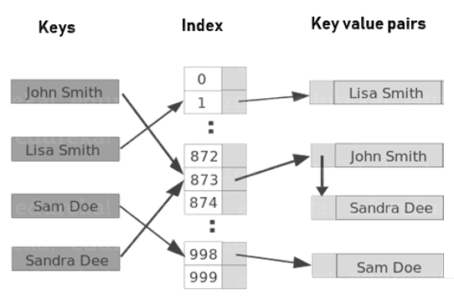Unalterable Strings: A Key Component in Ensuring Information Consistency and Integrity
In the world of information management, the importance of immutable strings can not be overstated. The idea of unalterable strings goes beyond mere formality; it is a cornerstone in the facility web of information governance.
The Concept of Immutable Strings
Unalterable strings, a basic principle in shows, refer to strings that can not be modified as soon as they are produced. Essentially, when a string value is appointed, any kind of procedure that shows up to change the string in fact produces a new string. This immutability ensures data uniformity and dependability in applications, as it avoids unanticipated changes to the original data.
Advantages in Information Consistency

Data uniformity is vital in various aspects of software program advancement, consisting of data source administration, multi-threaded environments, and dispersed systems (Why are strings immutable in Java?). Unalterable strings contribute considerably to achieving this uniformity by stopping data corruption due to simultaneous accessibility. In circumstances where several procedures or strings connect with the same data concurrently, immutable strings serve as a protect versus race conditions and synchronization concerns
Furthermore, the immutability of strings simplifies debugging and screening processes. With immutable strings, designers can trust that as soon as a string is set, it will certainly remain unmodified, making it easier to map the source of mistakes and guaranteeing that examination situations produce regular outcomes. This reliability in information handling inevitably leads to extra robust and secure applications.

Executing Immutable Strings
Ensuring the immutability of strings requires a thoughtful technique to their implementation in software growth. One essential method is to create string courses in a method that stops modifications as soon as a string item is developed. By making strings unalterable, designers can enhance data consistency and integrity in their applications.
To execute unalterable strings efficiently, designers should prefer producing brand-new string objects as opposed to modifying existing ones. This technique makes certain that when a string is appointed a value, it can not be altered. Furthermore, any operation that shows up to change the string needs to produce a brand-new string with the desired modifications instead of modifying the original.
Additionally, making use of immutable strings can simplify concurrency monitoring in multi-threaded environments. Since immutable strings can not be transformed after creation, they can be securely shared amongst numerous threads without the danger of data corruption.
Duty in Reliability Assurance
In software program development, the application of immutable strings plays a crucial role in making certain the reliability of data operations. helpful resources Immutable strings, once produced, can not be customized, making sure that the data they represent stays regular throughout the application's implementation. This immutability property provides a level of assurance that the data being refined will not be accidentally changed, causing unexpected outcomes or errors in the system.
By including unalterable strings right into software application layout, designers can enhance the reliability of their applications by reducing the risks related to mutable data - Why are strings immutable in Java?. Immutable strings help in preventing information corruption or unplanned helpful site alterations, which can be specifically important when handling sensitive information or when information integrity is paramount
In addition, the usage of unalterable strings simplifies concurrent handling, as several strings can safely access and share string information without the threat of one thread changing the content while another reads it. This element contributes significantly to the total reliability of the software application system, guaranteeing consistent and foreseeable actions in data handling procedures.
Applications and System Integration
The smooth combination of unalterable strings into different applications and systems is pivotal for making certain durable data uniformity and reliability throughout diverse technical settings - Why are strings immutable in Java?. Immutable strings play an important duty in boosting the honesty of data exchanges and communications within complex software ecosystems. By including immutable strings right into applications, designers can mitigate the dangers connected with data meddling, unauthorized alterations, and inadvertent modifications, thus strengthening the overall protection position of the system
In the context of system combination, unalterable strings offer as a foundational element for developing protected interaction networks and promoting seamless information transfers in between different elements. Their immutable nature guarantees that information sent between systems continues to be verifiable and unchanged, lowering the likelihood of variances or errors that might endanger the honesty of the entire system. Furthermore, unalterable strings can enhance interoperability between diverse systems by providing a standard format for data representation, allowing click here now more efficient data processing and exchange methods across interconnected platforms. By embracing unalterable strings in applications and system combination processes, organizations can fortify their data infrastructure and maintain the integrity and uniformity of their info possessions.
Final Thought
To conclude, unalterable strings play an essential function in keeping data uniformity and reliability in different applications and system integrations. By ensuring that strings can not be transformed as soon as produced, the stability of data is preserved, lowering the danger of disparities and errors. Carrying out unalterable strings can substantially improve the integrity of systems, eventually causing more accurate and reliable information processing.
